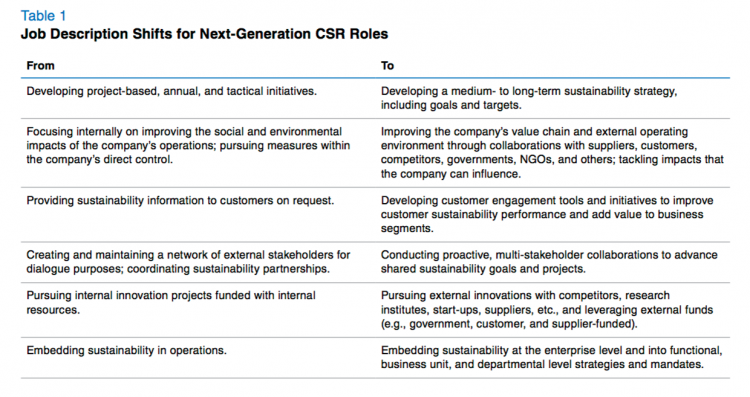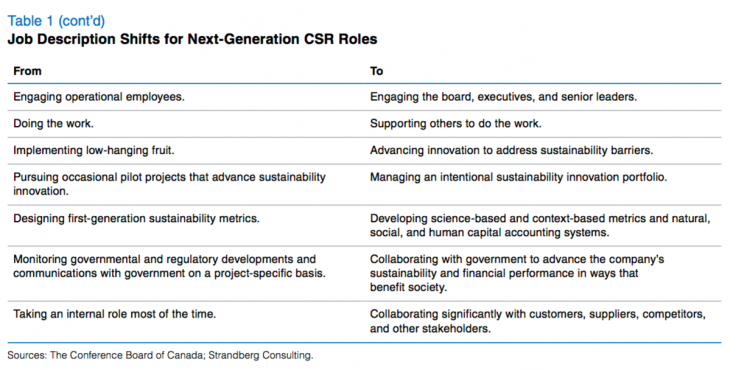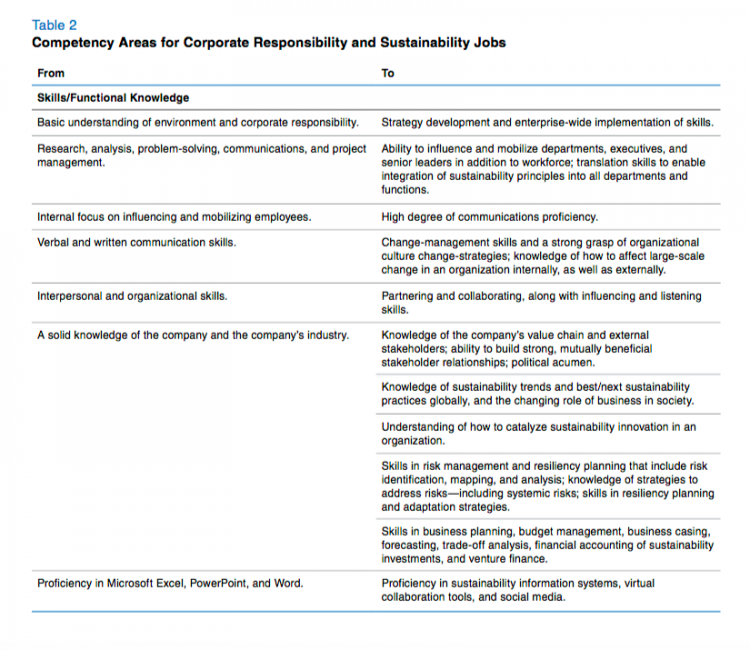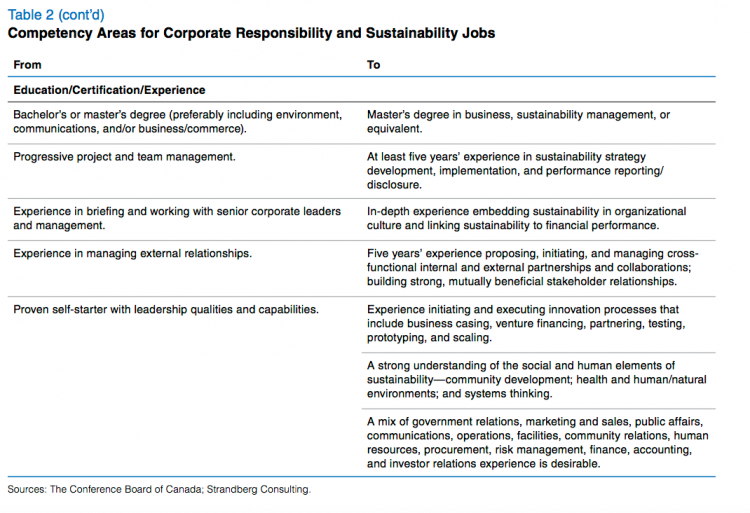The evolution of Corporate Responsibility and Sustainability jobs
Whether you are a seasoned professional, an up and comer or an aspiring CSR pro, understanding the roles of the future helps inform your actions and learnings today. The Conference Board of Canada recently issued a report on the Next Generation of CSR Roles. This is a summary of what you need to know.
As companies advance their sustainability and CSR programs, organizations’ needs and requirements change- changing the nature of the people doing the roles. The following table describes the shift in responsibilities for a CSR pro:


Job Responsibilities
According to the the Conference Board’s report, organizations should consider the following job responsibilities when creating roles or updating job descriptions:
1. Strategy Development, Implementation, and Performance Monitoring.
2. Internal Integration and Capacity Development.
3. External Stakeholder Engagement.
4. External Reporting, Communications, and Transparency.
5. Sustainability, Resilience, and Circular Innovation.
If you’re hoping to become a Director of Sustainability, they are typically responsible for facilitating the integration of sustainability across the organization and within/among the leadership team. From supporting HR to integrate CSR into employees’ experience to data analysis and risk management- directors responsibilities are wide.
It is also important to note that there needs to be executive level involvement (eg. VP level) in order for sustainability and CSR strategy to be effective within an organization. Being a truly sustainable and purpose driven company takes collaboration across levels. In larger organizations, it’s common to see a new C-Suite position with the role of “chief sustainability officer”.
Skills, Knowledge, Education, and Experience
Competencies and skills for corporate responsibility and sustainability jobs are also evolving. The Conference Board suggests practitioners should consider evaluating any gaps in their skill sets to help their organizations advance down the sustainability path. The following table describes the shift in competencies for Corporate Responsibility and Sustainability jobs:


CSR Departments
The Report also identified that it’s more than individual jobs that need to change, but also sustainability departments (where they exist) to achieve their long term goals. Rather than solely implementing, CSR teams need to become enablers and capacity builders, supporting colleagues across the company. The priority of the department is to then understand the specific challenges faced within the company.
What does this mean for me?
It’s important that sustainability practitioners continually check in with their job descriptions and consider if your job or organization needs an evolution in its requirements. If you’re looking to break into this field, it’s helpful to understand the skills and responsibilities required and review to see if there are any gaps. If you’re a leader of an organization, review the responsibilities to know what kind of skill sets you should be looking for.
This article was based on Coro Strandberg’s and the Conference Board of Canada’s paper on CSR Next-Generation Jobs (access the paper here)






No Comment